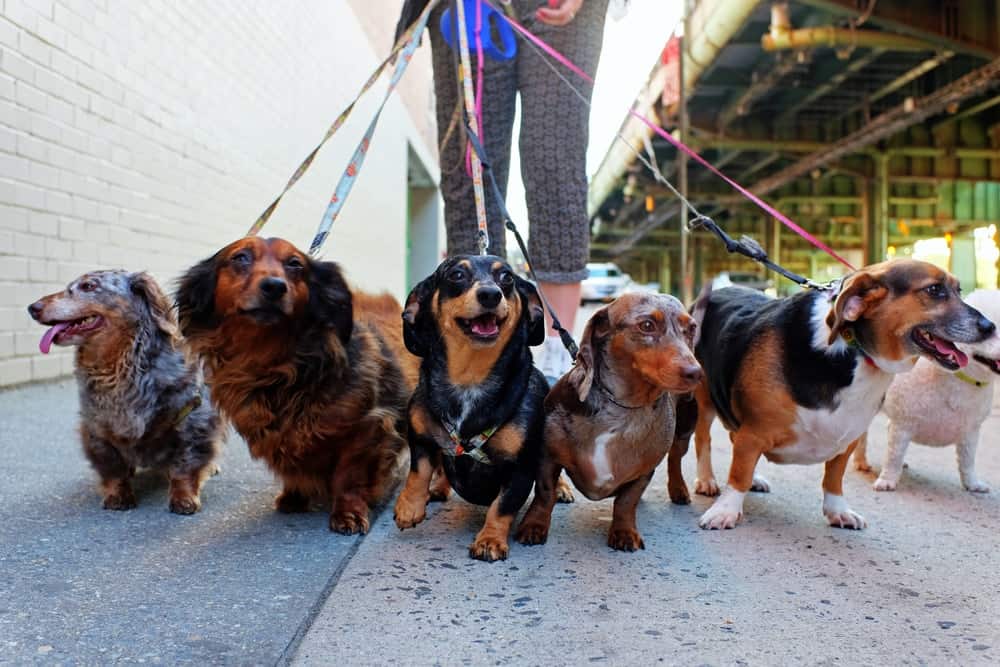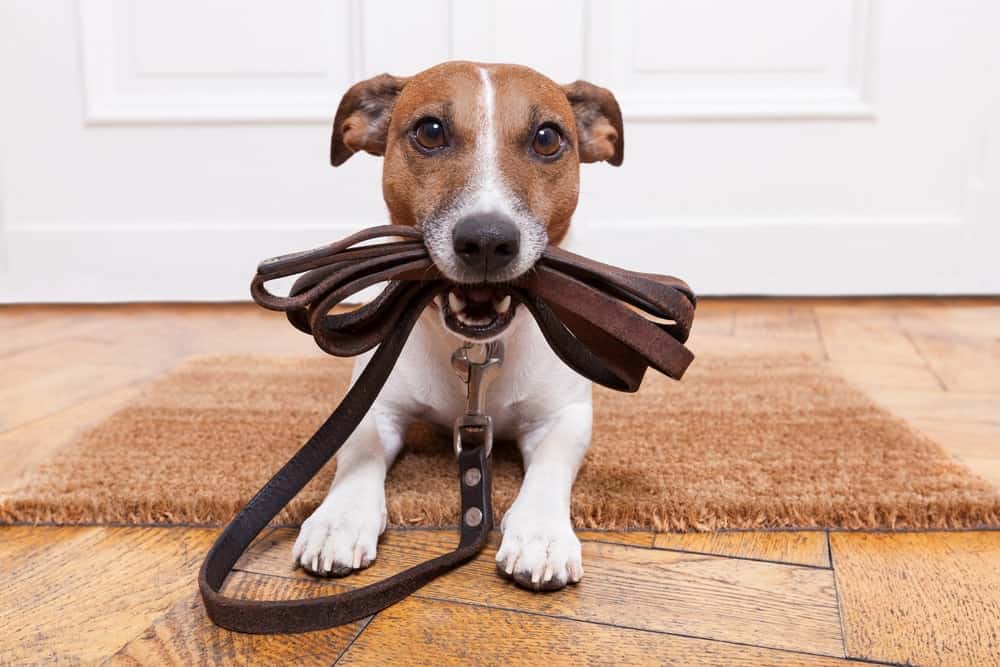“This post contains affiliate links, and I will be compensated if you make a purchase after clicking on my links.”
By Cynthia Garcia
For dog owners, purchasing a leash is mandatory. It is actually one of the first few things you must buy before or when you adopt a dog.

Most towns have a law against taking your dog outside without a leash. But, even if your city doesn’t have leash laws, your dog is safer with a leash on. Remember, even the most highly trained dogs can be distracted by a cat or squirrel and start running into the woods or a busy street.
Buying a leash is not as easy as walking to the local store and getting the first one you find. There are several things you must consider before finally making a decision. Remember, using the wrong leash can be very dangerous to you and your dog. Start by understanding which leash style and the material will suit your pet perfectly. If you want to know how to choose the right leash for your dog, please read on.
Select the Leash Material
The first factor you must consider is the leash material. There are numerous leash materials on the market, with the most common ones being chain, leather, and nylon. Specialty leashes made from cotton, bamboo, or rubber can be harder to find. So, the type of leash you get for your dog will depend on your budget.
Related: Tips and Tools to Stop Your Dog from Pulling the Leash
Nylon
The most common leash material on the market is nylon. That is because nylon is durable and affordable. Nylon is ideal for dogs living in wet places like near a swamp or lakes. Since it is a manmade material, you can find nylon leashes in just about any pattern and color.
Leather
A leather leash is a high-quality product that must be treated with a leather conditioner to maintain its quality. Leather leashes are natural, and they can be very comfortable for the dog. Even though they are not resistant to chewing, leather leashes can hold up for a long time. So if you are looking for a durable and attractive dog leash, you should go for this option.
Chain
Chain leashes are ideal for dogs that can’t resist chewing through other materials. Chain leashes can be quite heavy; therefore, they are only appropriate for larger dog breeds. If using a chain leash on a small puppy, should start with the thinnest and lightest chain that will restrain him and upgrade it as he grows.
Ask the Trainer: Puppy Pulls and Bites Leash

Choose the Right Leash Style
Dog leashes come in a wide variety of designs and styles; therefore, choosing the right one can be very tricky. However, the right one should fit your style and be functional. Some of the most common styles include:
Standard Leashes
A standard leash comes with a metal clip on one end to attach to your dog’s collar and a loop handle on the other. A standard leash is usually intended for everyday use and training purposes. The length of these leashes ranges between 4 ft and 8 ft, but a 6-foot leash is the most ideal for several dog breeds. Most standard leashes are made out of nylon.
Retractable Leashes
A retractable leash typically comes with a 26-foot cord or nylon band that retracts and a hook on the other end. This leash has a unique mechanism that can lock it at any length. Retractable leashes should ONLY be used on a dog that has been trained to walk using other leashes.
Adjustable Leashes
An adjustable leash resembles a standard one, but it has many loops along its leash. These loops allow the dog owner to lengthen or shorten the leash. Adjustable leashes can be useful during certain types of training.
Choose the Width
Even though the width may not be the first thing you think of when purchasing a leash, it is a crucial factor that must be considered.
Thinner Leashes
Thinner leashes can be great with small-sized dogs. Small puppies and young or small dogs require less restrictive, thinner, and lighter leashes. However, with puppies, you will have to upgrade to a thicker one later, depending on training, temperament, and breed.
Thicker Leashes
Thicker leashes are ideal for dogs that are strong pullers and chewers. Thick leashes are stronger, and they can’t easily snap under pressure.
Select the Right Length
The right length for your leash will depend on your dog’s size, breed, and the place where you normally take him for walks. In fact, you can own several leashes for different situations.
A 6-Foot Leash
The most common length for dog leashes is 6 ft, and it is the right length for walking your pet in a less-trafficked region or your neighborhood. A 6-foot leash provides enough space for your pup to explore without sagging too much. Therefore, you will not have to worry about the leash getting tangled in your leg or dragged on the ground.
A 4-Foot Leash
A 4-foot leash is ideal for a highly trafficked area or busy streets. A 4-foot leash can keep your dog next to you and prevent him from getting wrapped around lamp posts and poles. This length can be helpful if your dog hasn’t been trained to always walk next to you. This leash will prevent him from wandering into the street.
8-10 ft Leashes
The best leash for training purposes should be between 8 and 10 ft long. This length leaves more distance between you while also allowing you to control the dog.
Long-Line Leashes
The length of long-line leashes can range between 50 and 150 ft. These leashes are used for distance command training. They are perfect for teaching your dog recall commands and long stays or sits. With a long leash, you can maintain some control while allowing for greater distance between you two.
Consult Your Vet Before Making a Purchase
With all the above factors in mind and your dog’s size and breed, you should be ready to make a purchase on a leash. But, make sure you consult your vet if your dog has behavioral or health issues. Find out if there are leashes that you can use to tame your dog’s behavioral problem.
Cynthia is the editor and content creator at Pet Fashion Week. She’s a passionate pet rescue supporter and in her free time, she’s always looking for ways to help the community.


















